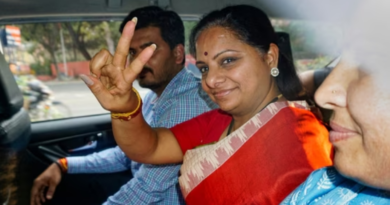Manifesto Promises Affordable Access to IVF, Bringing Hope to the Less Privileged

New Delhi : Amidst the prevalent campaign themes of caste, quotas, and competitive promises in welfare schemes, a seemingly small yet impactful pledge in the Congress manifesto for Rajasthan has the potential to fulfill the parenthood aspirations of numerous couples. The party’s manifesto, unveiled on Tuesday, includes a commitment to incorporate in-vitro fertilization (IVF) into the Mukhyamantri Nishulk Chiranjeevi Swasthya Bima Yojana. Additionally, the allocated amount for the scheme has been doubled from Rs 25 lakh to Rs 50 lakh.
In-vitro fertilization (IVF), a popular assisted reproductive technology for couples grappling with infertility, has traditionally been accessible mainly to financially well-off individuals or stable couples. The proposed insurance coverage for IVF, if implemented, could significantly broaden access to fertility treatment for childless couples who face financial barriers due to the prohibitive costs associated with IVF.
The cost of IVF treatment in Rajasthan typically ranges from Rs 90,000 to Rs 2 lakh per cycle, with variations based on factors such as the type of IVF procedure, clinic location, specialist expertise, and the number of required cycles.
Dr. Priyanka Yadav, a consultant at Birla Fertility and IVF in Jaipur, emphasized that approximately 10% of couples currently abandon IVF procedures due to financial constraints. The inclusion of IVF in the state scheme could provide significant relief, especially as no existing insurance providers, whether government or private, cover IVF expenses.
The move to address IVF in a political manifesto signals a growing acceptance of treating infertility as a medical condition rather than perpetuating the stigma associated with it. Dr. Aruna Kalra from the department of gynaecology and obstetrics at CK Birla Hospital welcomed the initiative, highlighting the potential for a reduced cost of IVF treatment and the significance of addressing fertility issues as a disease.
Chhaya Pachauli, the state coordinator of Jan Swasthya Abhiyaan, acknowledged the positive step taken by political parties in openly discussing infertility, emphasizing the need for breaking the associated stigma. However, she cautioned that the government must ensure the scheme is not exploited by hospitals.
If successfully implemented, this initiative could make a substantial impact on the lives of couples facing fertility challenges, offering them affordable access to IVF treatments and fostering a shift in societal perceptions around infertility. The political commitment to address this aspect of healthcare showcases a progressive approach toward reproductive health issues.






Pretty component to content. I simply stumbled upon your weblog and in accession capital to claim that I acquire in fact loved account your blog posts. Anyway I will be subscribing for your feeds or even I success you get admission to persistently rapidly.